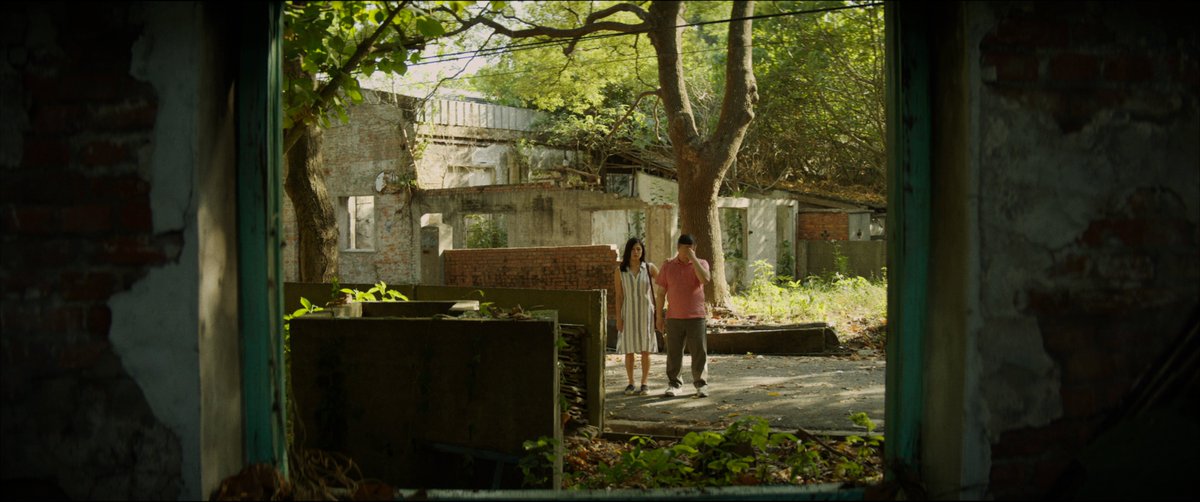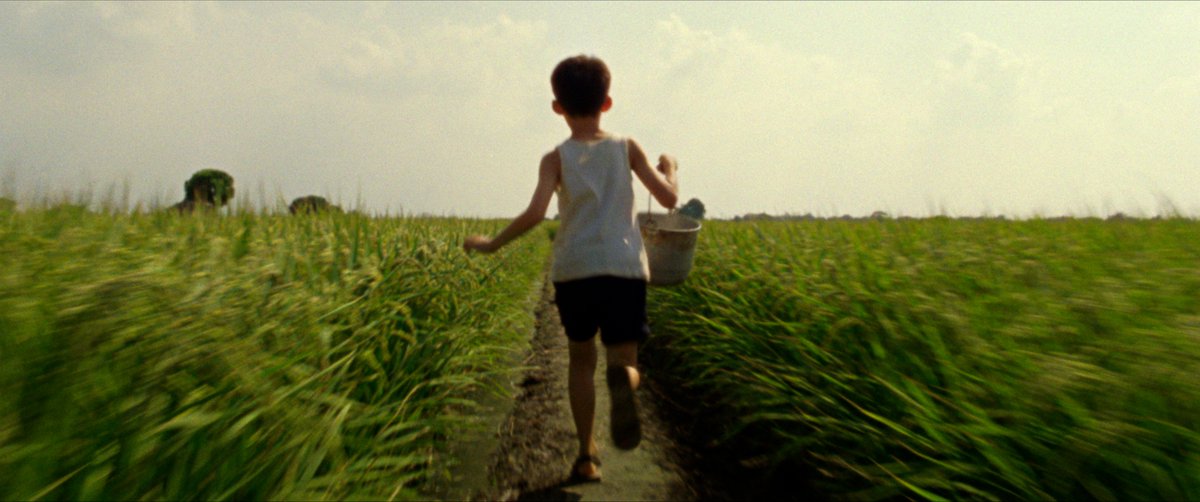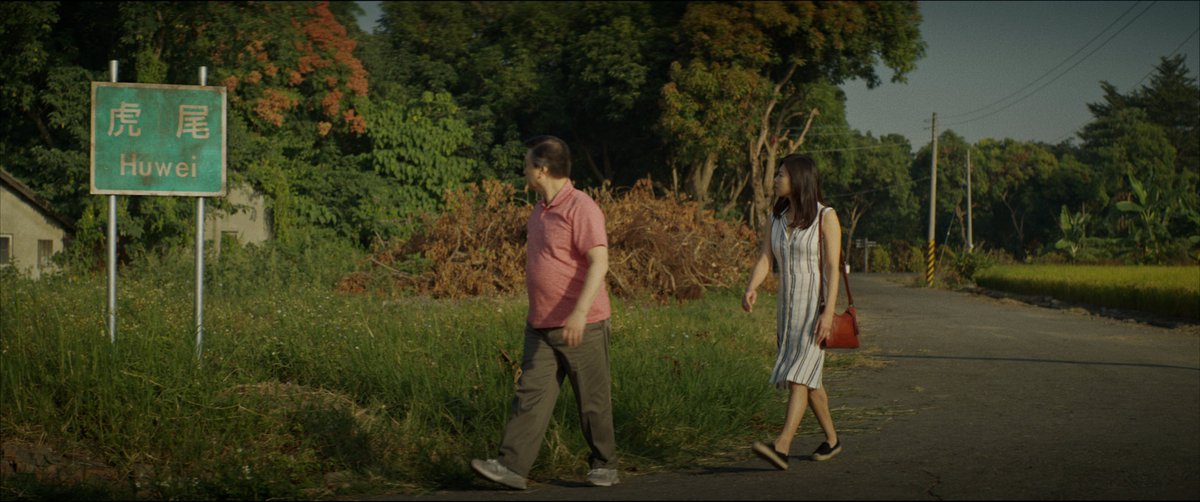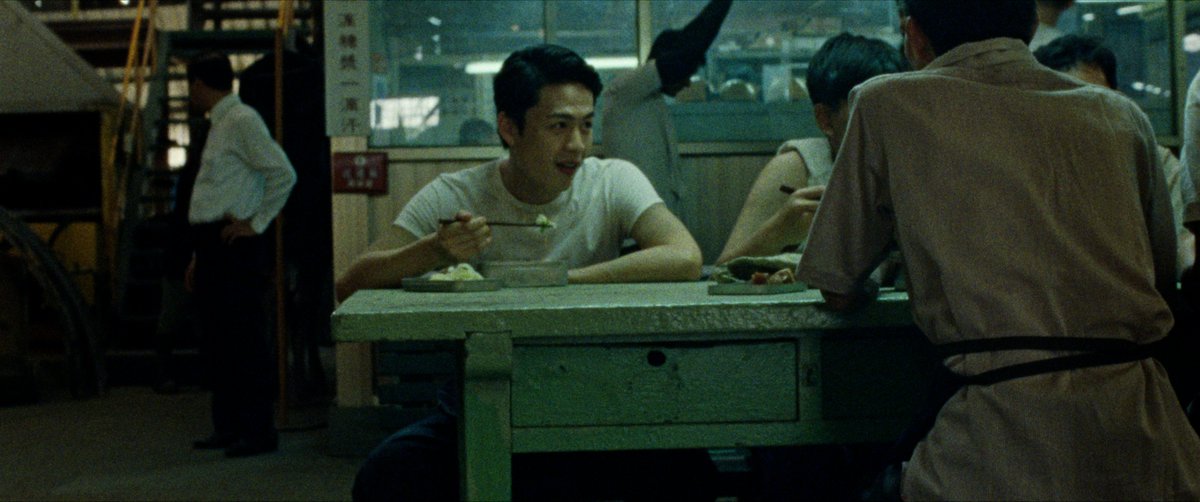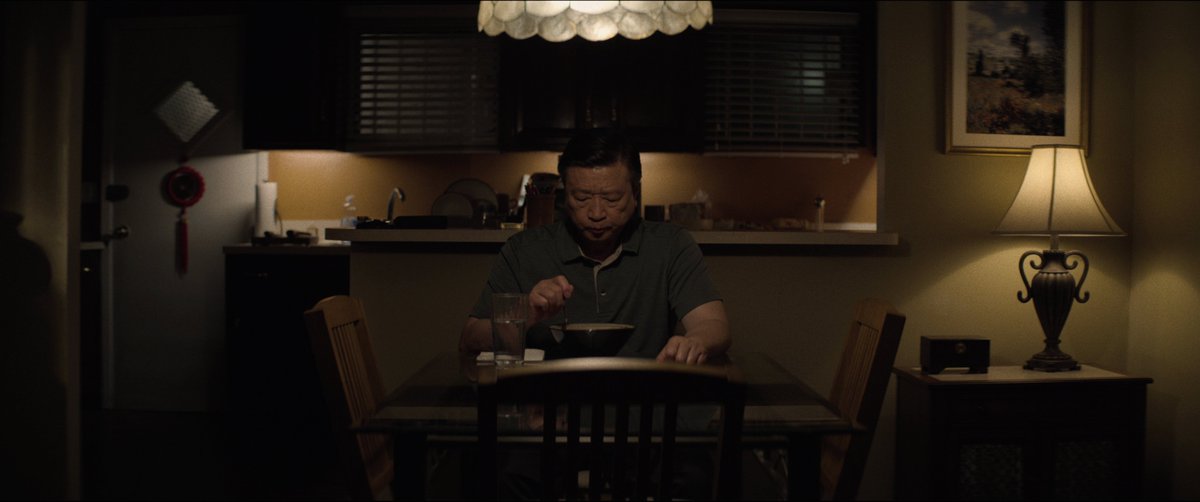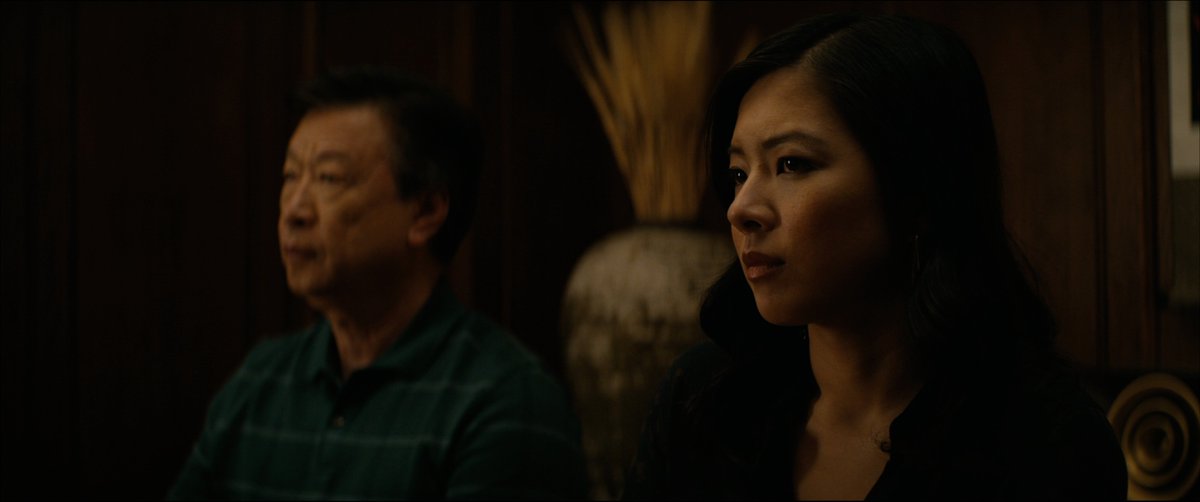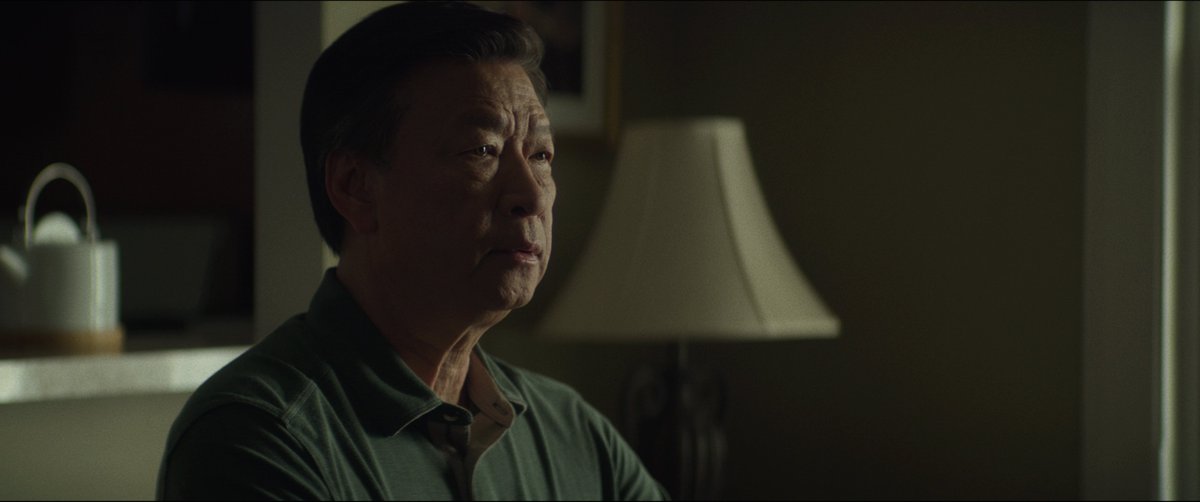Hi! This is @nancywyuen and I’m here to talk about TIGERTAIL, director Alan Yang’s tender immigrant story based on his father’s life and inspired by the work of iconic Hong Kong and Taiwanese filmmakers. (thread)
Alan Yang describes TIGERTAIL as a “fever dream” of his father’s stories “melded with some Wong Kar-wai and some Hou Hsiao-Hsien.” https://www.vulture.com/2020/03/alan-yangs-tigertail-tells-his-fathers-immigration-story.html">https://www.vulture.com/2020/03/a...
When audiences are first introduced to a pair of lovers at a dance hall in TIGERTAIL, the scene is awash in red and gold, reminiscent of Wong Kar-wai’s IN THE MOOD FOR LOVE, in which vibrant colors convey and augment the characters’ emotions.
The framing in TIGERTAIL is another nod to Wong Kar-wai, asking viewers to study characters in their settings. These two scenes, framed by doorways and windows, beautifully capture broken dreams, bitter realities, and faded memories.
As an immigrant from Taiwan, I seldom see Taiwanese Americans in film. To my delight, TIGERTAIL’s characters feel truthful: from Joan Chen & Tzi Ma& #39;s characters sharing a bowl of spicy beef noodle soup in NYC to Tzi Ma& #39;s Pin-Jui and Christine Ko, who plays his daughter.
From the rice-paddies to the old-timey streets, TIGERTAIL also captures the rustic beauty of Taiwan, rarely represented in Hollywood. The scenes make me wax nostalgia for my own childhood running around the lush open fields just outside of Taipei.
The film begins and ends in Taiwan, a full-circle immigrant story told through flashbacks juxtaposed with the present day. Alan Yang’s own father narrates the voice-over that bookends the film, lending it an air of authenticity with his Mandarin spoken with a Taiwanese accent.
Fans of MASTER OF NONE may recall the touching “Parents” episode — which Yang co-wrote and won an Emmy for — in which Brian’s dad recalls his childhood growing up in rural Hu Wei, Taiwan. “Hu Wei” (虎尾) literally translates to “Tiger Tail.”
TIGERTAIL shows the trauma of immigration when loved ones are left behind. Audiences see this in the transformation of Pin-Jui from an idealistic loverboy dreaming of America (Lee Hong-Chi) to a “broken” middle-aged man (Tzi Ma) who struggles to connect with everyone in his life.
TIGERTAIL also shows how children inherit their immigrant parents’ trauma, but avoids the clichéd storyline of the U.S.-born generation rebelling against their parents’ culture. Refreshingly, Christine Ko plays a daughter who longs to reconcile with her father and his past.
Can we also talk about Tzi Ma, everyone’s favorite Asian American dad? From THE FAREWELL to MULAN (2020) and TIGERTAIL, Tzi Ma (pronounced “Tai Ma”) continues to capture hearts and minds with his poignant performances.
TIGERTAIL joins films like THE FAREWELL, CRAZY RICH ASIANS, and LION in representing Asians in the diaspora (re)visiting Asia. In these films, Asian countries are represented more as places of heartache and homecoming rather than stereotyped exotica.
Alan Yang recently tweeted that TIGERTAIL is a “love letter” to his family and “all of the Asian immigrants out there.”
https://twitter.com/alanyang/status/1243208938000019458?s=20
Given">https://twitter.com/alanyang/... the current state of fear, we need a film like TIGERTAIL that humanizes & celebrates Asian Americans. — @nancywyuen
https://twitter.com/alanyang/status/1243208938000019458?s=20
Given">https://twitter.com/alanyang/... the current state of fear, we need a film like TIGERTAIL that humanizes & celebrates Asian Americans. — @nancywyuen
TIGERTAIL is now on Netflix globally.

 Read on Twitter
Read on Twitter



